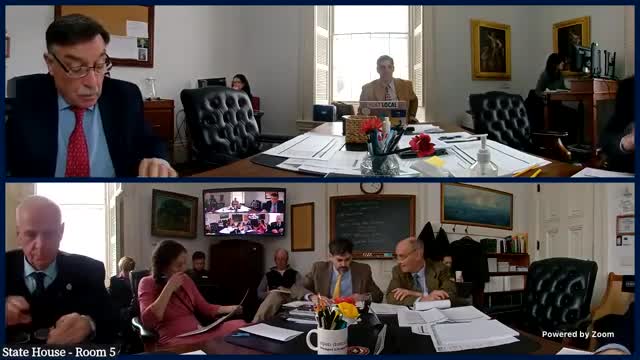Human services line items drive biggest demand in budget adjustment; Medicaid and nursing homes cited
Get AI-powered insights, summaries, and transcripts
Subscribe
Summary
Administration officials told appropriators the largest spending needs in the proposed budget adjustment come from human services — primarily Medicaid (Global Commitment) utilization and emergency payments and higher operating costs for some nursing homes and residential providers.
Administration officials told the Senate Appropriations Committee that the human services cluster accounts for the largest share of new spending in the governor’s budget adjustment.
Arnie Merrill, deputy commissioner of finance and management, summarized the human services adjustments and said the category’s total net change is “about $125 million,” with approximately $36 million of that additional need shown as general fund. He described the Medicaid budget entries as the primary driver behind the request.
Merrill pointed committee members to two large Global Commitment lines in the worksheet: one showing about $55.8 million and another showing about $69.4 million in Global Commitment appropriations. He said the $55.8 million Global Commitment increase translates to roughly $23.4 million of additional general‑fund need, and that the combined items reflect a mix of increased utilization and higher costs. “It’s a combination of…emergency financial relief” for some nursing homes and “additional capacity and utilization,” Merrill said, and he added that pharmacy costs and utilization trends contributed to the increased forecast.
Committee members asked whether emergency relief and rate changes would be sufficient for nursing homes. A committee member summarized the concern: the state had provided roughly $18 million in previous emergency relief, and additional needs being presented to the committee would be “on top of 18.” Merrill and other administration staff said they would bring Department of Vermont Health Access (DVHA/Global Commitment) and Department for Children and Families (DCF) staff in to provide program‑level detail and settlements that drive the final numbers.
The presentation also covered the Vermont Veterans’ or designated long‑term care provider line sometimes referred to as the “Best Home” in the worksheet. Merrill said those providers receive a federal settlement that is often realized after the fiscal year close; in past years that dynamic has led to recurring items in the budget adjustment for operating costs such as electricity, repairs, and staffing. He said the administration and the provider have discussed building a more realistic base budget for FY26 to reduce the need for recurring BAA adjustments.
Administration staff emphasized that the Global Commitment (Medicaid) appropriation is a “duplicated” or “mixing bowl” construct on the worksheet — the line shows both the general‑fund and federal match components — and that the committee will see agency officials with more granular detail in subsequent briefings.
No formal votes were taken during the presentation; agency staff said they would follow up with department presentations and additional documentation.
